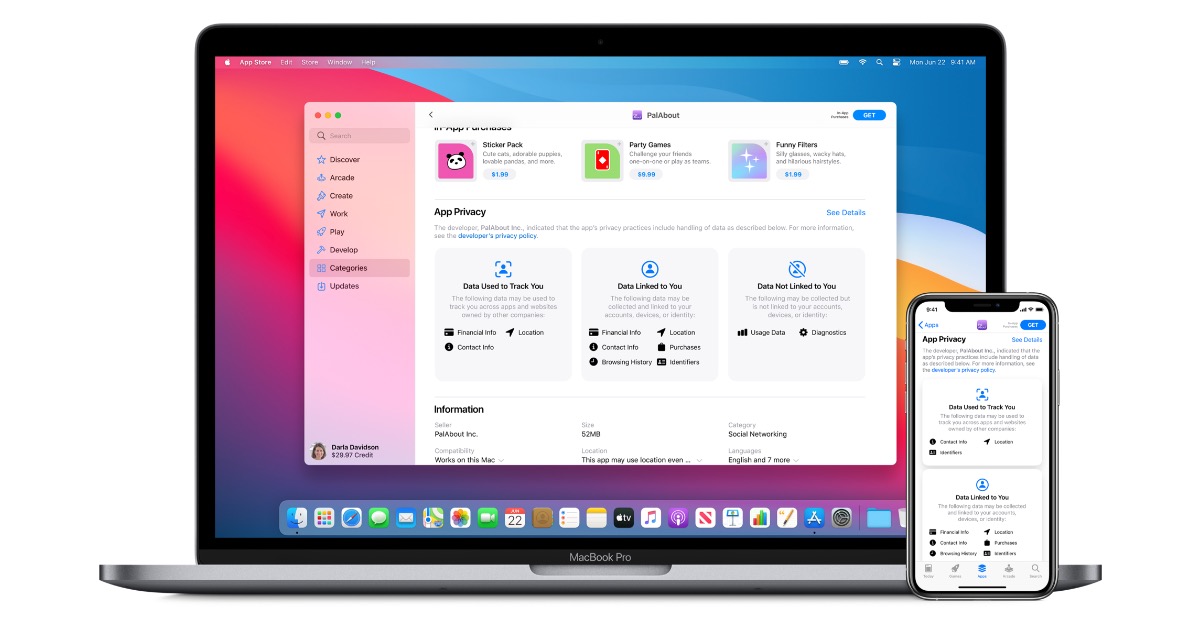Many apps have been found to be using inaccurate privacy labels in the App Store, despite Apple’s stringent review process and policies for the platform. These app privacy labels are a recent addition to the App Store and are intended to inform users on how their data will be used to track them.
Apple had rolled out the feature in December and has made it mandatory that all new apps and app updates will have to post privacy labels. Apple is not getting these privacy label updates though, and a quick check by The Washington Post has found that most apps are simply misleading their users by using inaccurate descriptions.

Many apps have been caught lying about the data they collect in App Store Privacy Labels
In an article on The Washington Post, titled “I checked Apple’s new privacy ‘nutrition labels.’ Many were false.”, author Geoffrey A. Fowler spot-checked a few dozen apps that claim to not track much data, but actually collect a lot of information and pass it on to Facebook and Google. Most of these apps have been games and social media apps (no surprises there, right?), and have been lying to customers on the type of data they collect.
Some of these apps and games include Satisfying Slime Simulator, Rumble (which has updated its labels now), Maps.me, FundDoPro, and many more. Some of the apps and games changed their labels after they were exposed for their shoddy practices.
As Geoffrey notes, Apple’s new privacy label system is built on a “shaky foundation” and relies on an honor system. A tiny footnote on each app’s listing says that “This information has not been verified by Apple.” This means that you cannot blindly rely on these privacy labels as they could be wrong in most situations.
Apple gave the following statement to Geoffrey regarding the issue:
“Apple conducts routine and ongoing audits of the information provided and we work with developers to correct any inaccuracies. Apps that fail to disclose privacy information accurately may have future app updates rejected, or in some cases, be removed from the App Store entirely if they don’t come into compliance.”
Of course, Apple is going one-step ahead and introducing App Tracking Transparency this year to give users more control over whether they want to be tracked or not by websites and apps. However, this exposes a major flaw in Apple’s review process. Although it might not be possible to review the huge number of apps that exist in the App Store, Apple has made it too easy for apps to simply provide inaccurate information for privacy labels.
The most horrifying aspect of this issue is that many of the apps and games that are lying about their data collection are targeted towards small kids. If these developers feel that it is ok for them to lie about the data they collect, and share with many services like Facebook, Google, and other analytics companies, what else might they be hiding when it comes to their business practices?
Apple needs to work on making privacy labels more reliable before they ask competitors to copy them.
3 comments
Comments are closed.